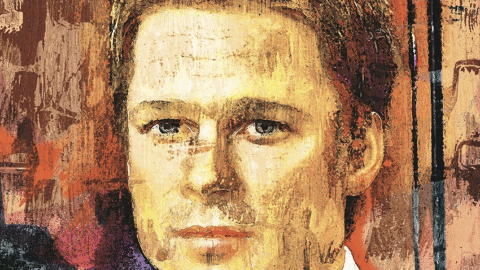Awakening Your Passion
One of the things that set musical performances apart is the level of emotional connection listeners experience. Music consists of word, sound, and power, and listeners can relate to one or all three of these parts when they are exposed to a musical performance, whether live or recorded.
With that in mind, the amount of passion you put into each part of your music is often the determining factor as to how much emotional impact it will have with listeners. If you have any doubt about whether your music is passionate enough, it probably isn’t, which means you may not be hooking people with your music as much as you could. Unfortunately, passion is not something that can be taught; it comes from within you and needs re-invigorating from time to time.
So, what can you do to sound more passionate in your songs, to make sure your words (lyrics), sound (music), and power (loudness, richness) resonate? For starters, let’s talk a bit about passion.
What is passion?
Passion has several distinct definitions. But one of the meanings put forward by Merriam-Webster, perhaps, best captures the one we allude to in music: “an intense, driving, or overmastering feeling or conviction.”
With that said, it’s easy to see why being passionate is linked to the expression of emotion. Basically, if you are exuding passion in your music, you are tapping into strong emotions, and others who experience your music will be able to recognize and react to those feelings.
And here’s the deeper part: passion is most powerful when it’s expressed for its own sake, without being tied to a particular outcome. When you write, perform, or produce because it lights you up inside, you’re aligned with your own creative flow. You don’t need to measure it by streams, ticket sales, or validation. Ironically, it’s often when you let go of those expectations that your music resonates the most, because listeners can feel the freedom in it.
Passion in your lyrics
People want to see themselves in the words of your songs. They want to relate to the feelings and situations you describe. One way to write lyrics that express deep passion is to be descriptive. Paint a clear picture of what you are trying to say and highlight human characteristics that people can recognize in themselves.
There’s a reason why some songs are considered perfect for reminiscing about lost love—Adele’s “Hello” or “Someone Like You” for example. Or why some songs are universally described as “beautiful,” regardless of their message. You may need to rewrite your lyrics several times to find the imagery that truly conveys what you feel. But remember, the process of rewriting is also part of the passion—you’re not chasing a perfect result, you’re allowing the passion to shape the song in its own time.
Getting in touch with your feelings
When you get in touch with how you really feel about a topic, you’re able to express passion authentically—whether in lyrics, vocals, or playing an instrument.
For instance, if you’re writing about being in love, let yourself sit with the actual feeling of being in love. Convey that warmth and elevation into your music. If you’re creating around injustice or pain, channel the raw emotions of anger, sadness, or determination. Think of John Lennon and the conviction behind “Give Peace a Chance”—they didn’t create it to guarantee a result, they created it because the message demanded to be expressed.
Truly believe in your message
This ties in with feelings, but goes further. You can feel strongly about a subject but not actually believe in what you’re saying. To channel passion, you must stand behind the message. Listeners will sense if your words are hollow.
And yet, believing in your message doesn’t mean clinging to what others will think of it. It means embodying it for yourself, letting your truth flow, and trusting that the right people will connect with it.
Focus on what you are good at
It’s easy to get caught up in the idea of being a “jack of all trades,” but spreading yourself thin drains passion. If your strength is songwriting, lean into that. If your gift is performing, focus there. Even all-around talents rely on collaboration—Bruno Mars is a strong songwriter and singer, but he still works with other writers and musicians to channel the fullest expression of his art.
By zeroing in on what lights you up, you give yourself permission to pour passion into one area fully. And when you do it for the joy of creating, not because of what it “should” get you, the outcome takes care of itself.
What does passion look like?
If you’re unsure, look at the work of passionate artists. You’ll know it by how their songs make you feel, by the conviction in their performance, by how they lose themselves in their music. Let their passion remind you of what’s possible, not as a standard to chase but as an example of how free it can feel when you let go of needing results.
Final thought
Whether you’re a singer-songwriter, performer, or lyricist, passion is something your listeners crave. But remember: passion is not about forcing an emotion or demanding an outcome. It’s about following what excites you most in the moment, creating for the joy of creating, and letting the music become its own reward.
Do that, and your passion will naturally connect, inspire, and resonate in ways you might never have expected.
























